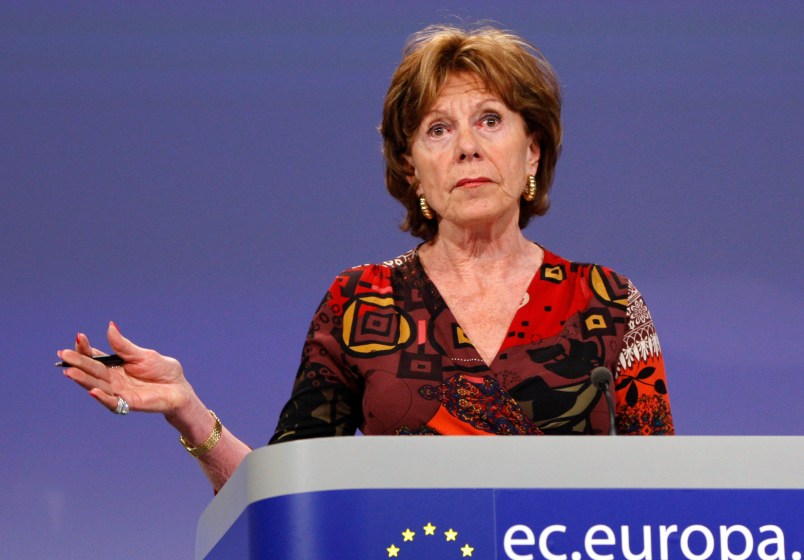AMSTERDAM (AP) — The European Parliament voted Thursday to stop Internet providers from charging for preferential access to their networks — a step cheered by consumer groups and startups but bemoaned by the telecommunications industry.
The bill on “net neutrality” forces Internet providers to treat all traffic the same regardless of its source. That will prevent major telecom and Internet providers such as Vodafone or Deutsche Telekom from reserving the best of their network for their own services, or selling the lions’ share of bandwidth to big companies like Google and Netflix, while leaving a slower Internet for everyone else.
European Commission Vice President Neelie Kroes, who proposed the bill, hailed Thursday’s 534-25 vote as “historic.” She said it will help “to get rid of barriers and to make life less expensive” for consumers.
Small companies, consumer groups and online freedom activists cheered Thursday’s vote.
“The beauty of this is that everybody with a laptop and an Internet connection can conquer the world,” said Wienke Giezeman of the Amsterdam startup WappZapp, which offers a personalized video service.
But large European telecommunications companies protested, warning of dire consequences if net neutrality is enacted in all European countries. So far, only the Netherlands and Slovakia have adopted strong national net neutrality legislation. The telecoms companies say they are increasingly operating at a disadvantage to their counterparts in the United States, where a similar law was shot down this year.
“Europe’s telecoms operators are facing decreasing revenues … compared with operators in the U.S. and Asia,” said the GSM Association, an industry group for mobile phone companies.
To become law, the bill must be approval by EU leaders, likely at a meeting in October, and a flurry of lobbying is expected before then.
“Europe’s big telcos will not take this Parliament vote laying down and will now bring out the big guns,” said John Phelan of the European consumer rights organization BEUC.
He predicted the telecommunications companies will argue the reform package would cause them grave financial damage but added “there is scant evidence to that effect.”
“It’s a narrow market dominated by big players whose yearly revenue is increasing exponentially,” he said.
Etno, an industry group of European telecommunications network operators, said the law will hurt consumers’ access to not only online medical services and education but “would also affect existing services such as IP-TV, tele-presence and Virtual Private Networks for businesses.”
Chairman Luigi Gambardella predicted “a dangerous situation in which the European digital economy will suffer and EU businesses will be put in a difficult competitive situation with respect to other regions.”
In the U.S., net neutrality rules imposed by the FCC were struck down by a court in January. The following month, Netflix struck a deal with Comcast to pay for preferential treatment of Internet traffic bearing its film streams.
Netflix had complained Comcast had left it little choice but to pay or see the quality of its service deteriorate. Comcast shot back that Netflix should pay because it uses so much bandwidth. According to estimates by the Canadian Internet monitoring firm Sandvine, Netflix and Google’s YouTube together account for about half of all U.S. Internet traffic.
Thursday’s bill will also forbid Internet providers from blocking or hindering companies that compete with their own voice and messaging services, such as Microsoft’s Skype and Facebook’s WhatsApp.
Roaming charges that mobile phone users pay when traveling in other countries will also be banned within the European Union by 2016.
Etno estimates that telecommunications companies will lose 7 billion euros ($9.6 billion) in operating profits through 2020 as a result. Consumers, however, should benefit.
Copyright 2014 The Associated Press. All rights reserved. This material may not be published, broadcast, rewritten or redistributed.






